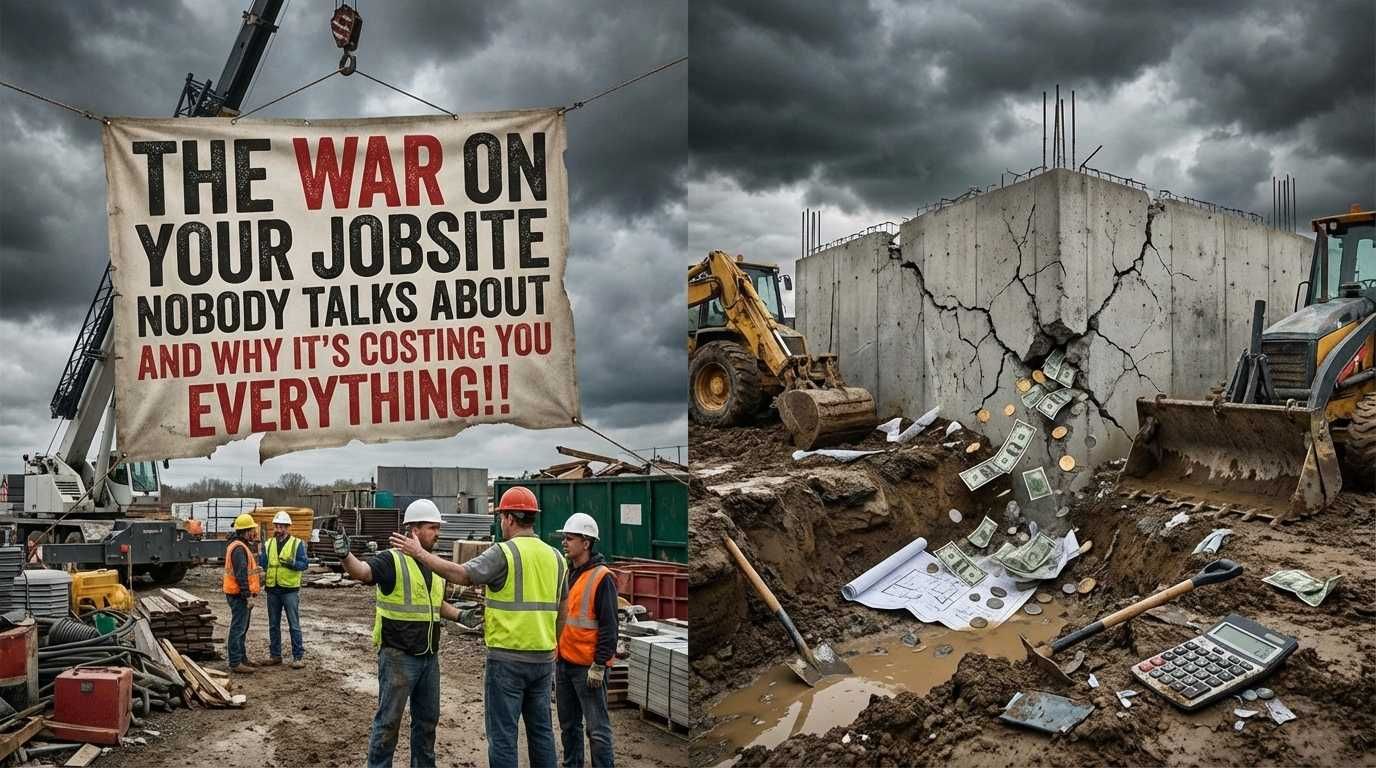Strategy Season, Part 1: The Contractors Who Win 2026 Are Already Thinking About It
The Challenge
Every fall season, I start getting the same calls from business owners. They tell me they’re in the middle of their final push, closing out projects, chasing retainage, lining up crews for winter work, and squeezing every bit of revenue out of the year. They say once things slow down, they’ll finally sit down to plan and reach back out to me because they know I spend every week talking with contractors around the country about what’s actually working out there and what isn’t.
Honestly, what they should be saying to themselves is, “I need to start strategizing because I’m the owner, and my appointed executives should be handling the year-end goals.” But that’s a conversation for another newsletter.
Back to this one, here’s what always happens. The year winds down, the holidays hit, and before they know it, it’s January. The phones start ringing, projects ramp back up, and everyone is right back in the same race. That so-called “final push” that was supposed to lead into planning ends up rolling straight into another year of reacting. And just like that, it becomes the “beginning of the year push,” and you’re already behind before the year even starts.
The cost of that delay is rarely visible at first. It creeps in quietly, showing up months later through slow cash flow, stretched crews, shrinking margins, and missed opportunities that could have been avoided with a real plan. Most contractors don’t even realize it’s happening, but by skipping a proper strategy in the fall, they’ve already left hundreds of thousands of dollars on the table before the new year has even begun.
The Impact
What I see over and over again is that most owners don’t just delay planning; they also do it alone. They’ll spend a Saturday morning with a cup of coffee, jotting down numbers on a napkin, trying to make sense of everything in their head. Or worse, they keep their “strategy” as a mental checklist, ideas floating around with no structure, no accountability, and no alignment across the leadership team.
It’s not that they don’t care. It’s that no one ever taught them how to properly build a business strategy. Most of them came up through the field, worked their way into leadership, and learned to solve problems by getting things done themselves. That mentality works in construction. But it breaks down when you’re trying to scale.
The truth is, companies don’t jump from fifty million to a hundred million or from a hundred to a few hundred because the owner works harder. They grow because they start thinking differently. They involve their leadership team in the planning process. They create buy-in. They take the time to define where they’re going and how they’ll get there together. That’s what turns a plan into action and a company into a machine that doesn’t rely on one person’s brain.
The Shift
This time of year, you should be sitting down with your leadership team, NOT by yourself, to talk through what really matters. Review the year honestly. Identify what actually made you money and what just kept you busy. Look at which clients are worth doubling down on, which project types fit your wheelhouse, and where the company is starting to outgrow its systems or people.
Don’t do it in your truck between meetings or on a Saturday morning with a cup of coffee. Block out real time. Bring the right people into the room. Make it a conversation that gets everyone aligned on what success will look like six months from now. That’s how you create buy-in and clarity.
When I help contractors through this process, that’s where the lightbulb goes off. The moment the team sees everything on the table, profits, risks, clients, and leadership gaps, it stops being an individual effort and becomes a company movement. People leave that room knowing exactly what to focus on and why it matters. It’s motivating to know that they are a part of the master plan!
You can do the same. But it starts by realizing that strategy isn’t something you scribble on a napkin or keep in your head. It’s something you build together.
The Closing
As we head into the final stretch of the year, remember this: I personally feel 2026 will be full of opportunity, but it will also test discipline because we also have many uncertainties going into the new year. The companies that excel will be the ones that started shaping their future when everyone else was still busy putting out fires.
The companies that win are the ones that not only have a solid Plan A but also know exactly what adjustments to make when things don’t go as expected. They’ve already thought through their Plan B and can pivot with confidence instead of scrambling to react.
Change takes time. It takes communication. And it takes courage to pause when everyone else is sprinting. But those few weeks you invest now, while everyone else is focused on the “final push”, are what will separate the companies who keep reacting from the ones who truly lead.
Next week in Part 2, I’ll be diving into what real strategic planning actually looks like. We’ll talk about how to build a 2026 strategy that connects your goals, people, and daily actions and how to do it the right way, not on a napkin over coffee or buried somewhere in your head. Because that’s not how contractors go from a hundred million to a couple hundred million or from a couple hundred million to a billion.
Gerard Aliberti
Pro-Accel, Owner
If this message hit home and you want help building your 2026 plan, send a note to
jerry@pro-accel.com. I can support you through Executive Coaching, Operational Assessment, or Strategic Development Planning.
Webinar Announcement!!
On November 13th at 11:00 a.m. EST, I’ll be joining forces with Patrick Shurney, Financial Coach and Owner of 3P Consulting, to host "From Builder to CEO", a paid masterclass that brings the financial and operational sides of contracting together.
This 90-minute session is built for contractors in the $5M–$100M range who want actionable steps, real deliverables, and immediate ROI. We’ll cover how to align your numbers and operations so you can step out of builder mode and into CEO mode.
Enjoying this newsletter? Pass it along to your colleagues and friends, and have them
sign up here: https://www.pro-accel.com/#Newsletter
If you like Jerry's insights, follow him on LinkedIn here: https://www.linkedin.com/in/jerry-aliberti/




